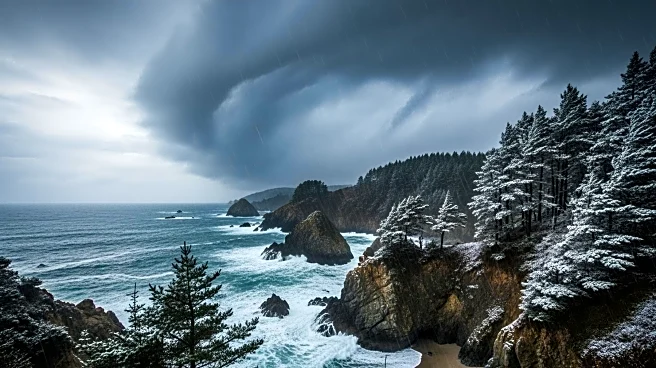Rapid Read • 7 min read
The Caspian Sea is experiencing a rapid decline in water levels, impacting oil shipments and threatening marine life, according to Azerbaijani officials. The sea, which holds significant offshore oil reserves, has seen its level fall by 0.93 meters in the past five years. This decline is attributed to climate change and Russia's construction of dams on the Volga River. The falling water levels are affecting the lives of coastal populations and the operations of ports, particularly in Baku, Azerbaijan. The reduction in water levels is also causing logistical challenges and increased costs for oil transportation.
AD
The decline of the Caspian Sea poses significant economic and environmental challenges. For the oil industry, reduced water levels can lead to decreased cargo capacity and increased logistics costs, affecting the profitability of oil exports. Environmentally, the shrinking sea threatens the survival of marine species, including sturgeon and Caspian seals, which are losing critical habitats. The situation highlights the broader impacts of climate change on natural resources and the need for international cooperation to address these challenges.
Azerbaijan and Russia have formed a joint working group to monitor and respond to the declining water levels. The group plans to approve a joint program in September to address the issue. This may involve increased dredging activities to maintain port operations and efforts to mitigate the environmental impact on marine life. The situation may also prompt further discussions on regional cooperation and climate change mitigation strategies.
AD
More Stories You Might Enjoy










